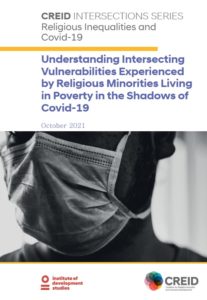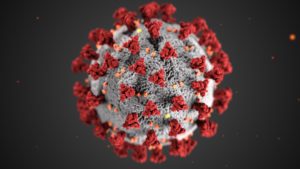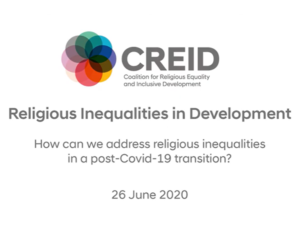This policy briefing by Dr Joanna Howard, Professor Oluwafunmilayo Para-Mallam, Dr Plangsat Bitrus Dayil, and Dr Philip Hayab, draws on research into the experiences of the pandemic by religious minorities living in Kaduna and Plateau states in Nigeria and finds that the pandemic deepened pre-existing ethno-religious fault lines.
The Covid-19 pandemic has had direct and indirect effects on religiously marginalised groups, exacerbating existing inequities and undermining ambitions for those ‘furthest behind’ to be reached and supported through the Sustainable Development Goals (SDGs).
The intersection of religious identity, socioeconomic status, geographic location, gender, and age compound vulnerability to violence and its impacts. Exacerbated by ongoing insecurity, Covid-19 (and efforts to contain it) contributed to increased poverty, with women particularly affected, and worsening mental health, with people experiencing fear, frustration, and depression. There are also long-term consequences for development; for example, on children’s education.
See also…
The evidence we can’t ignore: religious inequality and Covid-19 in India, Nigeria and beyond (Event)
The CREID podcast: Fatima Suleiman on increased violence against women in northern Nigeria (Podcast)
Discrimination and violence rife for religious minorities during Covid (Event)



